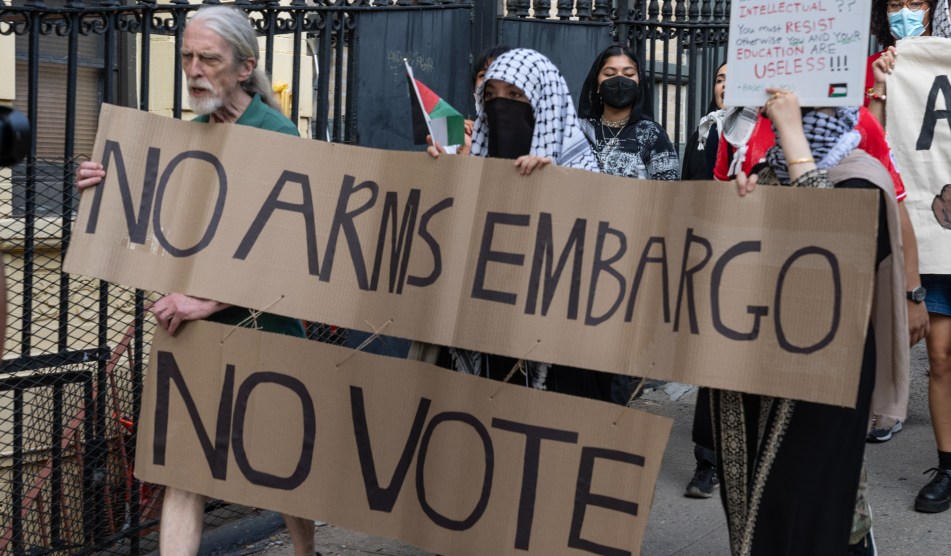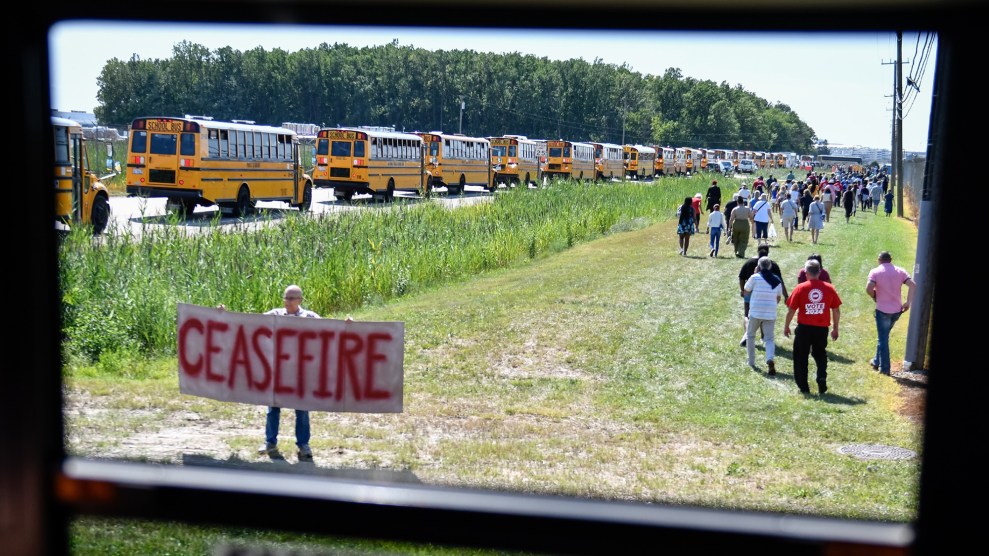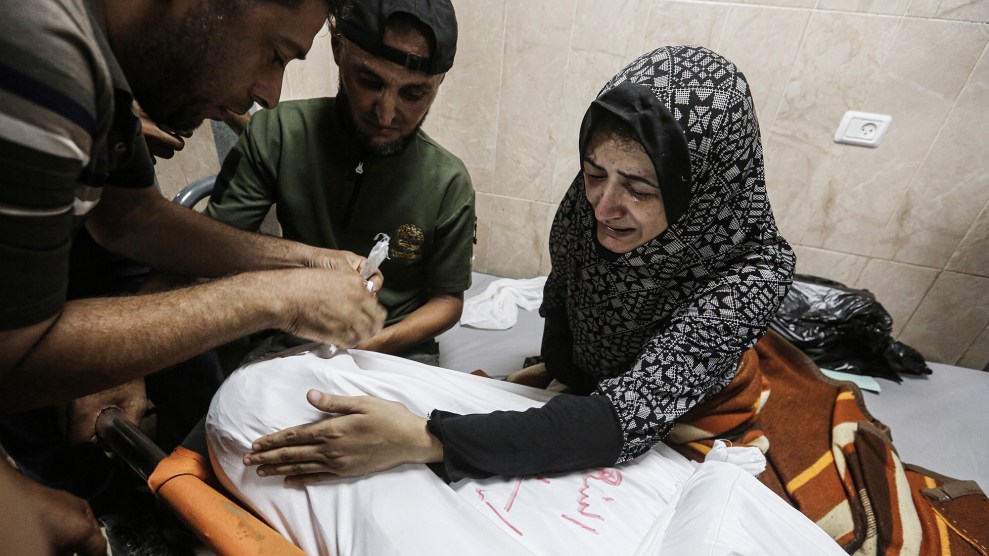
On August 14, activists held a rally demanding an arms embargo outside of a Kamala Harris campaign event in New York.Lev Radin/Pacific Press/Zuma
It has been a little over three weeks since President Joe Biden stepped down from his campaign for reelection. Since then, the Israeli military has killed at least 1,017 people in Gaza, according to Palestinian health authorities, tipping the death toll over 40,000; Israel has bombed multiple schools, claiming the buildings were used as centers for Hamas fighters—in one strike, 93 Gazans were killed with American-made bombs; and the United States has approved another sale of weapons to Israel, this time for $20 billion.
The US backing of Israel’s war on Gaza has largely faded from the headlines, eclipsed by the drama surrounding a new candidate in the upcoming presidential election. But as Vice President Kamala Harris heads into the Democratic National Convention, the war has far from halted. And there is not much hope for a cessation in fighting to come soon.
As her campaign emerges, Harris will have to speak directly about a conflict that is still at the center of the world. Hundreds of thousands voted against nominating Biden, with 30 Uncommitted delegates headed to the DNC to call for an arms embargo, among other policies.
Ceasefire talks—scheduled for Thursday and pushed by the US, Qatar, and Egypt— look unlikely to succeed, in part because Ismail Haniyeh, a Hamas negotiator, was assassinated in Iran on July 31, in an action widely thought to have been carried out by Israel (though no government has claimed responsibility). Hamas leaders have stated that they will not participate in this week’s round of talks.
While the official death toll has ticked past the 40,000 mark, the real number of people killed in Gaza is likely much higher. A letter in the journal The Lancet in early July said the number of dead “could exceed 186,000”; another letter, written by 45 US doctors recently returned from Gaza, estimated the current death toll at 92,000. The actual death toll will likely remain unknown until after a ceasefire is reached—many of those who die from being trapped under rubble or due to lack of medical care die are uncounted. “Everyone in Gaza is sick, injured, or both,” the doctors said, calling for an arms embargo and for the reopening of Rafah crossing.
One Palestinian father’s grief was shared widely on social media this week. He left his wife and 4-day-old twins alone in their apartment in central Gaza to retrieve their birth certificates. When he returned, he found his family dead in an Israeli strike. At least 115 infants born during the 10-month war have been killed, according to the Gaza Health Ministry.
Harris has called for a ceasefire deal, long something that Biden has also endorsed. She has said there have been “too many” civilian deaths in Gaza. But, like Biden, she has not declared support for an arms embargo—which is now the main demand from antiwar protesters in the United States. As the DNC kicks off on Monday, many thousands of protesters are expected to arrive in Chicago to attempt to pressure the Democratic Party.
A new poll conducted by the Institute for Middle East Understanding and YouGov shows that key Democratic voters would be accepting or even enthusiastic about a presidential candidate who withholds weapons from Israel. Over a third of those surveyed in Pennsylvania, Georgia, and Arizona would be more likely to support such a candidate. Less than 10 percent of voters across those swing states said such a move would negatively impact their support.
Meanwhile, a regional war looks closer every day. The US Department of Defense has stated that it “seeks to deter” such a conflict by moving more US military vehicles into the region—as Israel responds to an attack by Hezzoblah from Lebanon that killed 12 children in the Golan Heights, and Iran threatens retaliatory strikes for Haniyeh’s death on their soil. Israeli Prime Minister Benjamin Netanyahu, meanwhile, has sabotaged ceasefire talks by continually adding new conditions to Israel’s demands, as recent reporting in the New York Times showed.
“It is time for this war to end and end in a way where Israel is secure, all the hostages are released, the suffering of Palestinians in Gaza ends, and the Palestinian people can exercise their right to freedom, dignity, and self-determination,” Harris said after meeting with Netanyahu in late July. She has not yet indicated a plan for America’s role in achieving those goals.












